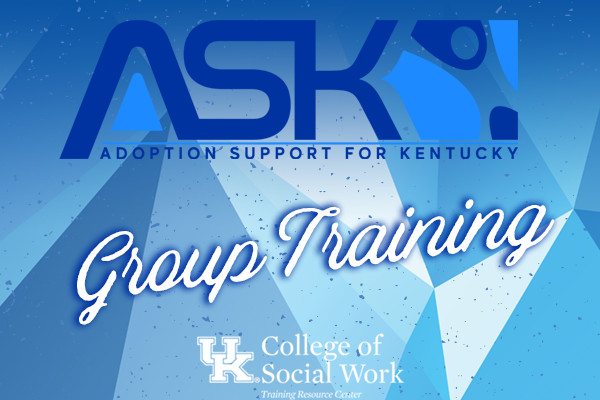Week of Events
Services & Support For Foster & Adoptive Families
Services & Support For Foster & Adoptive Families
Services & Support for Foster & Adoptive Families will inform parents about resources available to individuals with intellectual disabilities through the Michelle P. Waiver Program, which allows eligible individuals to remain in their homes with services and supports. In addition, participants will learn about SSI, finding biological parents, and the importance of planning for independent […]
ASK-VIP LGBTQ+ Foster/Adoptive Parent Support Group
ASK-VIP LGBTQ+ Foster/Adoptive Parent Support Group
ASK-VIP LGBTQ+ Foster/Adoptive Parent Support Groups are specifically designed for foster/adoptive parents who identify as LGBTQ+ as well as foster/adoptive parents who are caring for children or teens who identify as LGBTQ+. The groups offer an opportunity to share experiences, questions, resources, and concerns in a safe and compassionate environment. These groups are led by […]
Strategies To Remain Positive When Adopting
Strategies To Remain Positive When Adopting
Strategies to Remain Positive When Adopting describes common behaviors that the child(ren) may exhibit as well as feelings adoptive parents may have during the adoption process, including grief and post-adoption depression. This training also provides strategies on how to cope with these emotions in a healthy way. After completing this training, participants will be able […]
Healthy Boundaries: Strategies For Answering Tough Questions
Healthy Boundaries: Strategies For Answering Tough Questions
Healthy Boundaries: Strategies for Answering Tough Questions helps foster and adoptive parents understand the importance of setting boundaries in their lives. It explains the different types of boundaries (Physical and Emotional) and offers strategies and ideas to help parents work with children to build their own boundaries, especially when it comes to intrusive questions asked […]
Confidentiality In Foster Care
Confidentiality In Foster Care
Confidentiality in Foster Care explores the importance of protecting the confidentiality of children in care. It offers strategies for how sensitive information about children in care can be communicated in appropriate ways while maintaining confidentiality. Maintaining a child’s confidentiality across a variety of settings, including social media, is addressed. After completing this training, participants will […]
Positive Discipline For Teenagers
Positive Discipline For Teenagers
Positive Discipline for Teenagers will provide foster/Adoptive Parents with effective tools that will guide them to positive discipline and communication with teenagers that are in their care/home. It discusses the importance of using partnership based approach to discipline. After completing this training, participants will be able to: Identify the three main styles of discipline and […]



